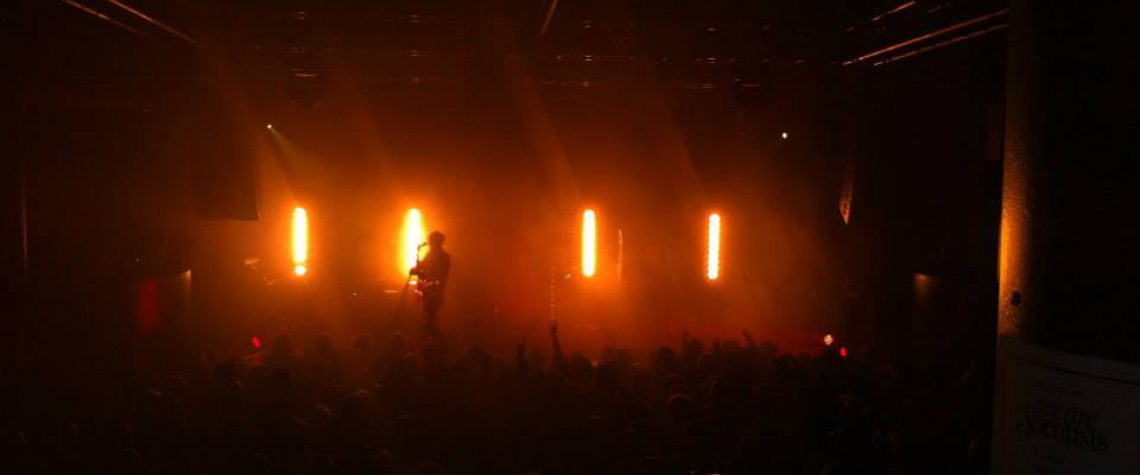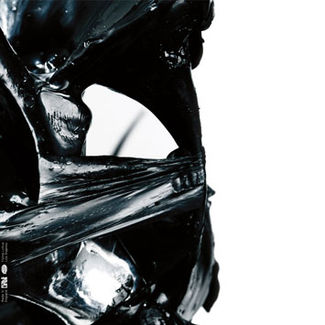Released June 10th 2008. Review published January 29th 2009.
Now way down there at Arecibo, they’re listening. With antenna arrays pointed out into the endless black, it’s a search coming out of a species’ planetary loneliness, one that’s turned spectral analysis into a hunt for billion year old ghosts, doppler effect perverting the short wave noise and hisses like sound effects from the Horsehead Nebula.
DJ & Producer Steven Ellison/Flying Lotus is from Winnetka, California (Like that matters) and is best (Not) known for creating the compositions that bridge random segments of the Adult Swim. He also makes music which sounds like the first SETI transmission will be to our uncomprehending simian ears, skeletal, pulse driven, fizzing with crackly frequencies and laced with radioactive static.
Science fiction? Strap on your ear goggles and take Los Angeles’ second track “Breathe Something/Stellar Radar”. In less than three and a half minutes (Ellison refreshingly has no appetite for stretching anything beyond its event horizon of interest) we’re abducted by a narrow beam of crunchy drum loops, squelching bass and most strangely of all what sounds like harmonies from The Andrews Sisters, transmitting way out from beyond the Kuiper Belt. Everything here sounds somehow broken, stretched and distorted. “Beginners Falafel” comes with death ray swirls and dub-centric effects stretched taut over the simplest of beat underlays, before seemingly at random a huge, spiralling melody fires it off into the ether. Background noise and interference blankets almost everything.
Here and there amongst what is universally (sic) compelling things become shufflingly exceptional; the loose, vibey “Golden Diva” is as good as anything Carl Craig has ever produced in a lifetime of techno-eclecticism. “Riot” is the sound of a fight on Tatooine between dysfunctional robots and empty Storm Trooper helmets – and it’s the best track Two Lone Swordsman never made. Los Angeles real moment of truth however lurks further in. It comes about halfway through GNG BNG, when things suddenly transcend into bad trip hex. Just after alpha-sitars begin to loll you into a heat haze daydream, the world turns inside out on the back of dirty, distorted white noise; as kick drums start to pound the senses and the walls close in, you realise that you left whatever you perceived as your reality (to be) someway up or down the rabbit hole.
Senses after all seem pointless here; Los Angeles is like a flotation tank supreme, dislocated, disobeying the laws of whatever. Here and there parameters of the normal lie around, as casually abandoned as artefacts in J.F. Sebastian’s house. Trip then on the layered cool of “Roberta Flack”, collaborator Dolly’s vocals an oasis of deeply soulful intelligibility. There are words on “Testament” too, but this time vocalist Gonja Sufi sounds like his mouth is filled with cotton wool, screaming a ransom demand into a broken tape recorder.
This after all is laptop organics, machine music with para-human intelligence, tunes possessing the constructed break and bleep that are the android equivalents of blood, semen, heartbeats. Dubstep was the only thing dragging music forward this century, as rap, r’n’b and the endlessly redundant big club noise all stalled, or lay in a dark alley endlessly hacking at its id. But dubstep this is palpably not; instead Ellison is part of a hazy, disjointed cell structure of like-minded auteurs, fusing hip hop’s left field diaspora with equal parts science and alchemy. This is the way that these invisible networks of artistic dark matter will undoubtedly spread, virus-like; shared samples, glitchy found sounds, music produced in complete anonymity and distributed through the world’s fibre optic leylines. And somewhere in a darkened room, a display is beginning to flicker.


2 Comments
Comments are closed.